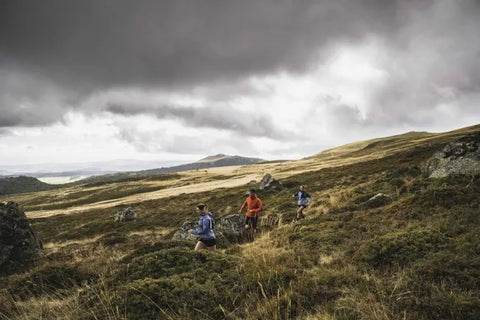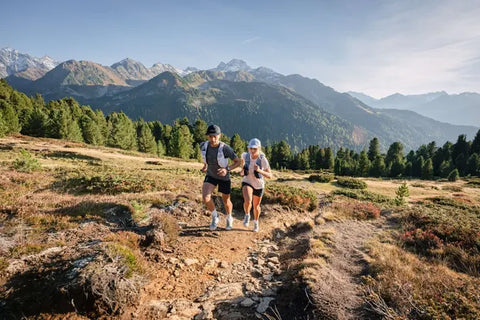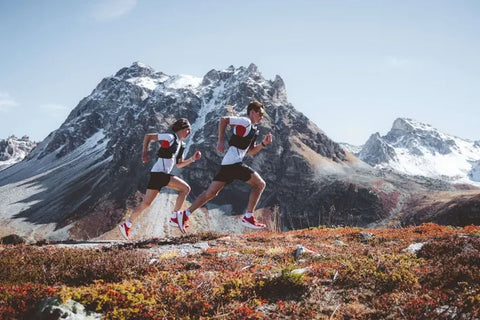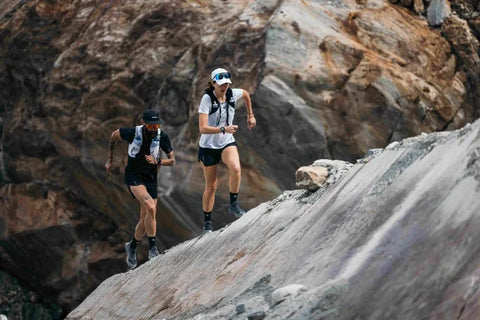Have you decided to take up trail running, but this sport seems difficult, technical or even dangerous? Do you think that you can only do it high in the mountains over long distances? What actually is trail running?
THE DEFINITION OF TRAIL RUNNING: RUNNING IN NATURE
Trail running is simply defined as going for a run in the heart of nature. It's an extremely all-round non-stadia sport that, of course, works the legs, but also the upper body. Lastly, it requires concentration and attention.
You don't need to be high in the mountains to go trail running. You simply need to be in nature.


Trail running includes ascents and descents
Trail running is not only practiced in the mountains, but rugged terrain and climbs are part of the sport. Trail running also involves more than running.
During the ascents, you alternate walking and running. You sometimes use poles or push on your legs with your arms in the steeper sections.
During descents, you have to watch your footholds, landing on the forefoot to cushion the impact. You use your arms a lot for balance. Embrace the slope, run easy and have fun with the terrain!
Why is trail running different from road running?
Unlike road running, the terrain varies constantly when trail running. You run on trails, over rocks, mud and grass and perhaps even over snow during a white trail run. Even an urban or a city trail will foster a diverse route.
TRAIL RUNNING BEYOND PHYSICAL EXERTION
Over and above running in nature, there is also a trail running state of mind. Opening your senses, listening to your body and its sensations, feeling good and appreciating the place where you are running. All these various feelings will allow you to exercise in harmony with the natural environment.
By concentrating on each step, you think less and listen to your emotions. This sensitivity will allow you to take pleasure in exercising and being outdoors.


AND WHAT ABOUT PERFORMANCE WHEN TRAIL RUNNING?
Trail running is also about signing up for a race and preparing for it. Setting off on the Mont Blanc Ultra Trail, the Grand Trail des Templiers, a mountain race or a night-time trail with a headlamp is a real thrill whatever the distance covered.
Define a varied trail running training plan with intervals, fartleks and vertical kilometers, for example. Also adapt your diet, keep well hydrated, and don't forget to warm up and stretch. Good physical preparation means stacking all the odds in your favor for the day of the race.
But even when you're wearing a race number, it doesn't matter if you're first or last. The distance chosen, race time or ranking are not important. In trail running, you run at your own pace and listen to your senses to feel good before looking at your GPS watch. Don't start off too quickly and take the opportunity to refuel!
Crossing the finish line, seeing your adventure through to the end and sharing strong emotions are at the very heart of trail running.
This singular state of mind is what really defines trail running. And it's undoubtedly why new runners are taking up this nature sport each year.
Learn more on our Stories & Guides trail running page.

